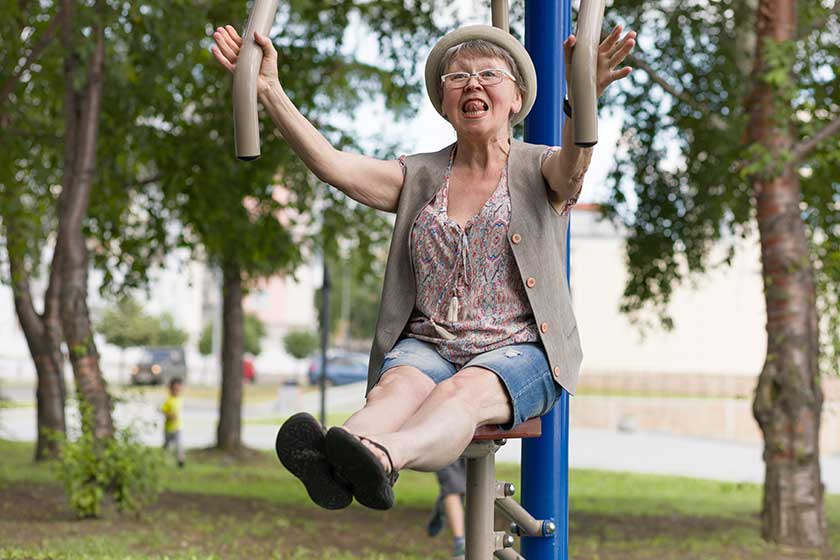Retirement is a major life change that can bring a mix of emotions such as excitement and nervousness. Transitioning from a busy work life to a slower pace can be challenging, but staying active and engaged is key to maintaining physical and mental well-being.
Here are fun activities to keep engaged and enjoy life after retirement, ensuring a vibrant and fulfilling lifestyle.
Daily Exercise
Exercising daily brings numerous benefits, particularly for retirees. Activities like hiking, jogging, or playing yard games are excellent ways to stay active. Regular physical activity can help prevent heart disease, diabetes, and other ailments while improving cognitive abilities. Whether you prefer a gentle yoga session or a brisk walk, the goal is to keep your blood pumping and your body moving.
Dancing
Dancing is a fun way to improve balance, stay active, and enhance cognitive function. Many gyms offer dance-based fitness classes like Zumba, which are easy to modify based on your fitness level. If you are living in a retirement community, check if it offers dance classes as an enjoyable way to stay fit, socialize, and meet new friends.
Brain Exercises
The brain needs regular exercise, too. Engaging in word puzzles, learning new skills, or hobbies can stimulate cognitive functions. Creative activities like painting or crafting can also enhance mental agility. Studies show that learning new things can decrease the risk of Alzheimer’s disease. Consider auditing a class at a local college or taking non-credit courses to keep your mind sharp.
Creative Writing
Writing is a great way to reflect on your experiences and keep your brain active. Whether it’s starting a journal, writing a memoir, or creating fiction, writing daily can be a fulfilling routine. Exploring local tea and coffee shops for the perfect writing spot can also be a delightful part of this creative process.
Art and Creativity
Art therapy has been shown to improve cognitive function, reduce isolation, and promote a sense of autonomy. Activities like drawing, painting, and pottery provide creative outlets and stress relief. Picking up a paintbrush and letting your creativity flow can be a therapeutic and enjoyable way to spend your time.
Game Nights
Invite friends over for a game night. Playing card games or board games has been linked to better immunity and improved memory in older adults. These games engage your brain and provide a fun way to socialize and stay mentally active. Regular game nights can strengthen friendships and provide a consistent source of enjoyment.
Hanging Out with Friends
Staying connected with friends is crucial for overall health at any age. Retirement can sometimes lead to weakened social ties, so it’s important to maintain these connections. Regular outings with friends can help decrease the risk of developing various diseases and contribute to a longer, happier life. Planning activities and outings ensure you remain socially active and engaged.
Volunteering
Having a sense of purpose is vital in retirement. Volunteering with school children, spending more time with family, or getting involved in community projects can provide that purpose. Research shows that having a purpose in life can lead to increased longevity and satisfaction. Choose a cause you’re passionate about and make a positive impact in your community.
Mentoring
If you have a wealth of experience, consider becoming a mentor. Many local organizations, schools, and libraries seek mentors to share their insights and life advice. Mentoring helps you stay connected with your community while making a positive impact. Sharing your knowledge and experiences can be incredibly rewarding and fulfilling.
Cooking and Baking
Home cooking is not only fun but also beneficial for your nutrition. Try new recipes or cooking techniques each week and share your culinary creations with friends and family. Cooking can be a therapeutic activity that also provides opportunities for social interaction. Experimenting in the kitchen and hosting dinner parties can be a delightful way to spend your time.
Gardening
Gardening not only provides physical activity but also offers mental and emotional benefits. Growing your own vegetables or flowers can be a rewarding hobby that also promotes healthy living. Gardening allows you to connect with nature and enjoy the fruits of your labor, both literally and figuratively.
Whether you enjoy physical activities, creative pursuits, or social interactions, there are countless ways to keep your mind and body active. Explore these activities to enhance your retirement experience and enjoy a fulfilling, vibrant life.







